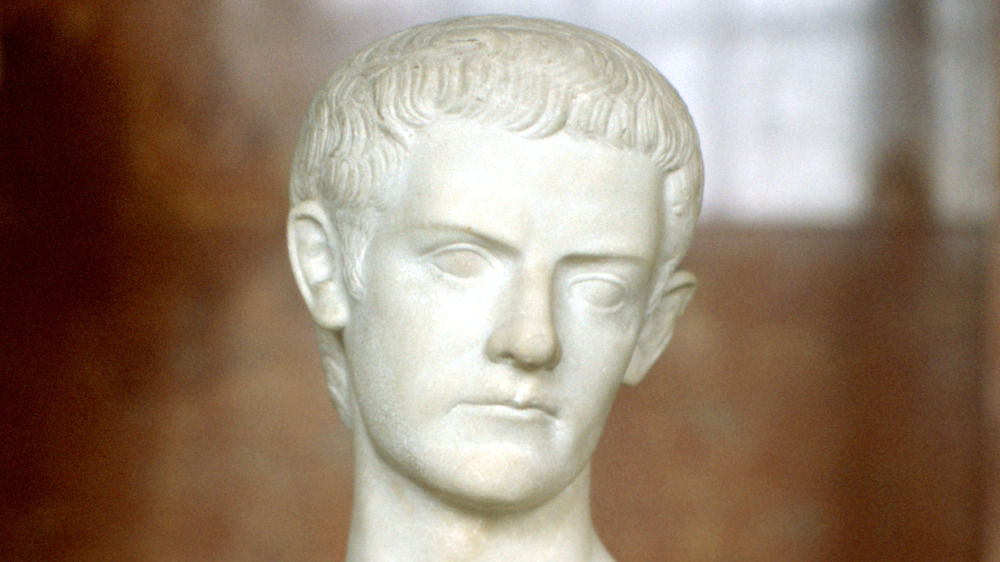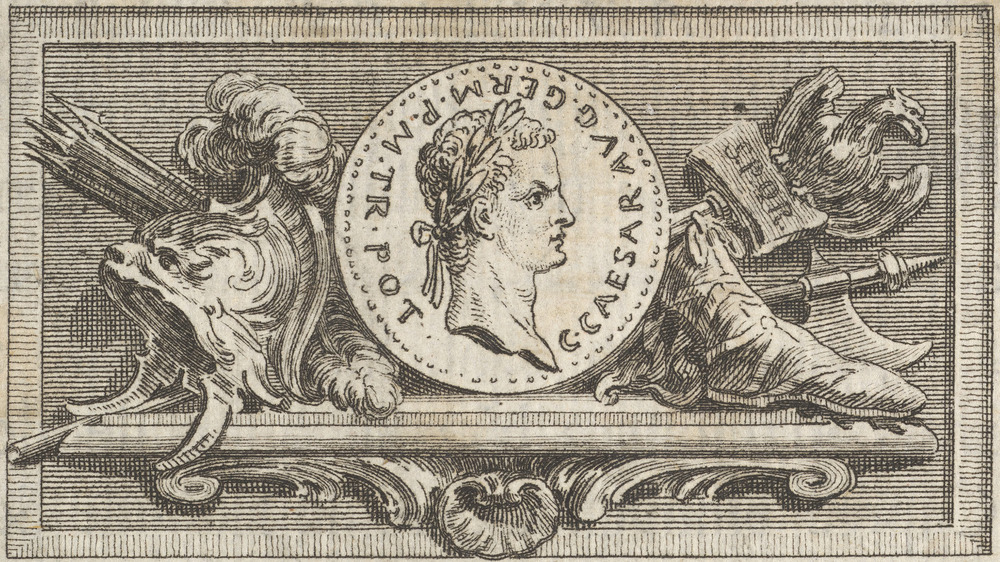This Roman Emperor Made His Horse A Consul
Whatever your opinion of the leadership of the United States at any point in the nation's history, let's breathe a collective sigh of relief that none of us lived in the Roman Empire from 37-41 CE, when the "Mad Emperor" himself, Caligula, reigned. Recent years have seen an attempt to rationalize or downplay his lunacy, psychopathy, and sexual escapades, and blame them on illnesses like hyperthyroidism, as History says, but let's be clear, again: that guy cray. Yes, much of Caligula's history was written after-the-fact by potentially biased sources, and yes, there was that 1979 movie starring Malcolm McDowell that's still banned in Canada and Iceland, which has colored our modern impression of Caligula. And also yes, Caligula, in terms of tyranny, cruelty and matricide, set a high bar for his nephew and future emperor Nero (who ruled from 54-68 CE).
Admittedly, the historical record suggests that Caligula was less maleficent and more capricious. As Britannica states, he did do some normal emperor things like advance the invasion of Gaul (modern day France), but once there, he just ordered the army to collect some seashells as "spoils of the conquered ocean." He also reinstated treason trials, wasted the Roman treasury through overspending and a love of gold, launched "pleasure barges" from Lake Nemi, believed himself to be a god, became increasingly erratic, and was ultimately assassinated as the result of a conspiracy on his life.
Oh, yes. Lest we forget: There's the whole "horse governor" thing.
Possibly better at government than some people, it's true
Okay: to be fair, "horse consul." A consul in Ancient Rome was one of the highest magisterial positions in the empire, per Britannica. As heads of state, they presided over the Senate, interpreted laws in court, commanded the army, and much more. If consuls were horses, they would naturally be far more adept at these tasks. At least, maybe this is what Caligula believed, because, as History states, he made his favorite horse, Incitatus, a consul, and "gave the steed a marble stall, an ivory manger, a jeweled collar and even a house."
This tale comes from Roman historian Suetonius (69-122 CE), who, as the The Conversation states, wrote about Rome's emperors from Julius Caesar to Domitian, today dubbed The Twelve Caesars. In this book, Imperial Rome is portrayed as place of relentless intrigue, scheming, and assassinations, which has helped create our modern vision of that era. Suetonius also said that Caligula fed prisoners to "wild beasts," committed incest, and "had conversations with the moon."
Many modern scholars disbelieve the story, however. Roman lawmakers, they say, would never have stood for such unhinged behavior. Caligula took it to an extreme, but certainly he isn't the only governing figure whose behavior (unhinged, or worse) was tolerated, if not approved, by colleagues.

